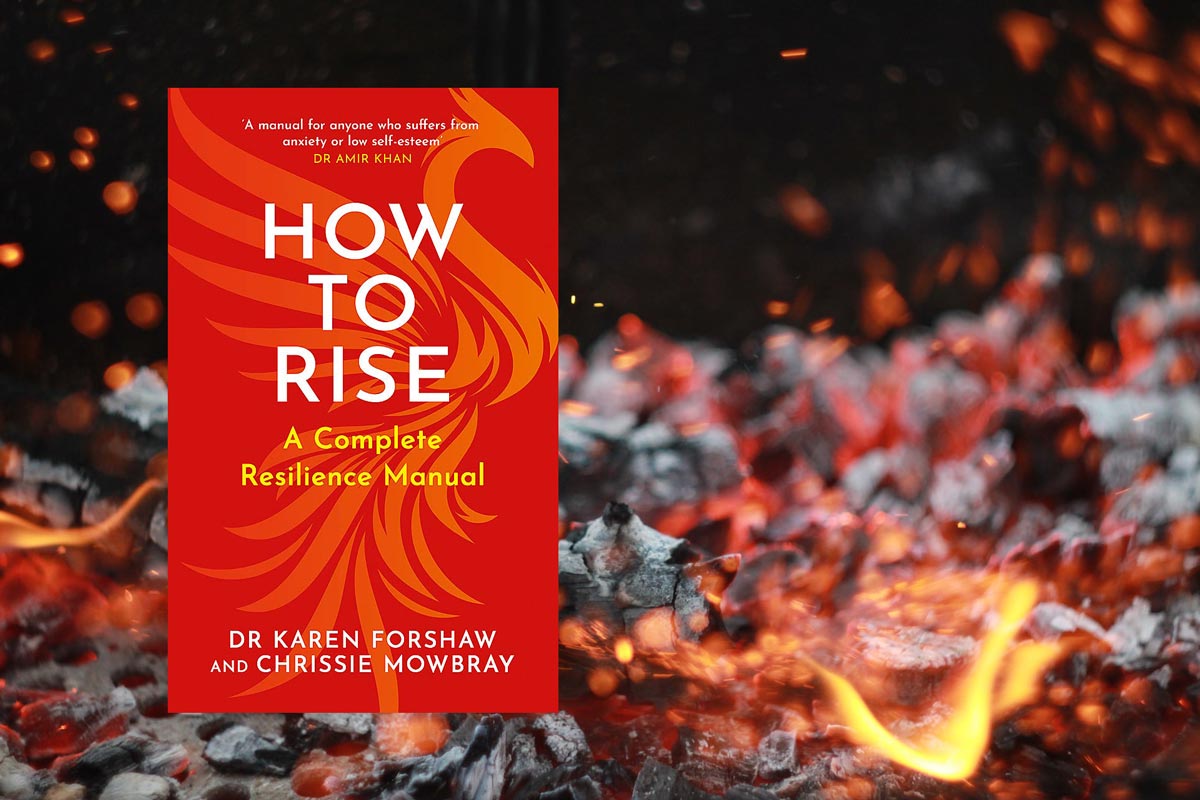 Lucy Martin is a GP working as a clinical GP and trainer in Dudley in the West Midlands. She also works as a Joint Medical Director for Dudley Integrated Health and Care NHS Trust, a community primary care provider and commissioner. She has researched on the topic of resilience at work. She is on Twitter: @o_ello
Lucy Martin is a GP working as a clinical GP and trainer in Dudley in the West Midlands. She also works as a Joint Medical Director for Dudley Integrated Health and Care NHS Trust, a community primary care provider and commissioner. She has researched on the topic of resilience at work. She is on Twitter: @o_ello
Karen Forshaw is a GP working in South Yorkshire and is involved in education of GPs both in training and for continuing professional development. Chrissie Mowbray is a charted physiotherapist with further qualifications in NLP and psychotherapy. Both work as Resilience Trainers.
Their book How to Rise: A Complete Resilience Manual is a book that brings together aspects of Eastern and Western philosophy and psychological practice to provide a convenient handbook for practitioners and patients.
The Resilience Manual is written in three parts: first, describing the theories behind human resilience; second, some basic core skills that may be helpful to become more in touch with the psychological self and enable practice of the toolkit, which is presented in part three.
“The book gives an explanation of the concept of psychological resilience, and the fluid and changeable nature of resilience.”
The book gives an explanation of the concept of psychological resilience, and the fluid and changeable nature of resilience. It describes how multiple factors can affect resilience, and while there are aspects of life a person cannot control, such as clinical workload for GPs, there are other aspects that can be controlled and improved.
The initial chapters refer to a cognitive behavioural therapy approach, describing the process of ones belief system leading to particular thoughts, which cause an emotional response and then the enacting of behaviours. The authors have a helpful online survey, which is also available in the book in print, for the reader to perform a personal resilience ‘gap analysis’. This addresses aspects of resilience that have been described in literature as contributing factors such as management of workload, coping with uncertainty, healthy habits, and work–life balance. We know from the literature that there are many methods of measuring resilience, but it’s not clear whether this one is researched or validated. It is something that can quantify some components contributing to resilience in a numerical format, thus enabling the reader to compare their ‘before and after’ scores.
The authors are clear in their description of the book that their writing combines ancient practice as well as modern psychology, and this is where I think the book will be challenging for GP readers working in evidence-based practice.
“The authors have a helpful online survey … for the reader to perform a personal resilience ‘gap analysis’.”
Universal ‘laws’ of attraction, for example, are widely criticised in psychological practice as having no foundation. However, their thinking around our evolved ‘addiction to negativity’, and the wellbeing-enhancing effects of showing positivity and gratitude may make sense to readers as ways of understanding their own psyche a little more.
The chapters describe common practices used in resilience building courses, such as observation, communication, visualisation, mindfulness, and reflection. Much of their commentary about these techniques will chime with GPs as they contain a lot of similar themes to our own training in communication, empathy, and reflective practice.
The final section contains 60 tools, all of which are described and categorised to help with specific problems such as anxiety, depression, insomnia, irritable bowel syndrome, and pain. These will be attractive to patients seeking ideas on self-help, and GP colleagues may also feel empowered to have a collection of specific tools to signpost patients towards for these commonly presented issues in primary care.
“Overall this handbook will be a self-help-style read for patients seeking methods of improving their own mental wellbeing.”
The toolkit comprises a combination of different visualisations — sets of instructions for people to follow as simple meditations, relaxations, and reflections. There are a few more practical examples for improving assertiveness, delegation, time management, and learning to say ‘no’, which may be appealing to GPs.
Overall this handbook will be a self-help-style read for patients seeking methods of improving their own mental wellbeing. I think doctors will find the lack of evidence behind the methods off-putting, and the elements of complementary psychological practice would probably stop me from recommending it to patients, although there may be some useful nuggets in there for the individual GP reader.
Resilience in work is something we are all thinking about with increasing workloads, work intensification, and patient demand. Measures of resilience and solutions to help us improve our resilience are very much needed. The ‘rise’ of self-help manuals and courses is inevitable but in my view the solutions are more complex. However, the sentiment behind this book and the wish to support people to change some of the elements than can be changed in their lives is recognised.
Featured book: Karen Forshaw and Chrissie Mowbray, How to Rise: A Complete Resilience Manual, London: Sheldon Press, 2021, £10.61, PB, 978-1529370119
Featured photo by Edward Kucherenko on Unsplash.






